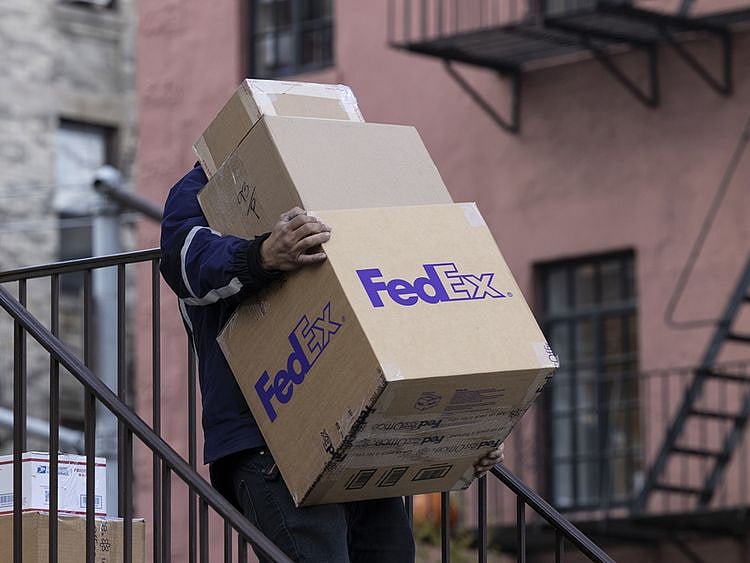FedEx has biggest drop in over 40 years after pulling forecast
FedEx’s stock plunged 21% Friday in New York, the biggest one-day drop since 1980

California: FedEx lost $11 billion in market value, wiping out two years of stock gains, after withdrawing its earnings forecast on worsening business conditions.
In a potentially worrying sign for the global economy, the package-delivery giant flagged weakness in Asia and challenges in Europe as it pulled its prior outlook and reported preliminary results for the latest quarter that fell well short of Wall Street’s expectations. Conditions could deteriorate further in the current period, FedEx said.
The company will take immediate steps to cut costs, including parking some aircraft, cutting workers’ hours and closing more than 90 of its roughly 2,200 FedEx Office locations.
While US economic data has been mixed, with employment and manufacturing holding up, companies across industries are starting to paint a grimmer picture of the economy. Conditions in Asia and Europe also appear to be weighing on the US, where consumers are shifting spending into travel and concerts and away from online shopping.
FedEx’s stock plunged 21 per cent Friday in New York, the biggest one-day drop since at least 1980. At $161.02, the shares fell to the lowest level since July 2020.
Put simply, it was an “ugly quarter,” according to Robert W. Baird & Co. analyst Garrett Holland. “Global freight demand has significantly deteriorated.”
Analysts with Deutsche Bank AG went further, calling it “the weakest set of results we’ve seen relative to expectations” in about two decades of analyzing companies.
FedEx’s announcement added to the growing gloom from companies across industries. General Electric Co.’s chief financial officer warned Thursday that the company is seeing pressure on cash flow amid supply-chain snags, while industrial titans US Steel, Alcoa and Nucor have said deliveries are waning. The CEO of McDonald’s said earlier this week he expects a minor US recession in 2023 and a more significant one in Europe.
Recalibrated spending
At the same time, retailers such as Walmart and Target have scaled back expectations as consumers recalibrate their spending. In August, shipping containers arriving in Los Angeles - the US’s busiest port - fell by the most since the early days of the pandemic, which is another sign that demand is moderating.
FedEx’s bleak comments are a setback for its new CEO, Raj Subramaniam, who had won investor support shortly after taking the reins in June by raising the dividend, agreeing to revamp the board and laying out a multiyear plan to boost profit. Subramaniam now must steer the courier through a post-pandemic economy in which consumers are spending more on services than discretionary purchases.
Earnings, excluding some items, for the fiscal first quarter were projected to be $3.44 a share, Fedex said in a statement late Thursday detailing preliminary results. That’s well short of the $5.10 average estimate of analysts. Preliminary revenue of $23.2 billion in the period ended August 31 narrowly missed expectations.
Sign up for the Daily Briefing
Get the latest news and updates straight to your inbox
Network Links
GN StoreDownload our app
© Al Nisr Publishing LLC 2026. All rights reserved.